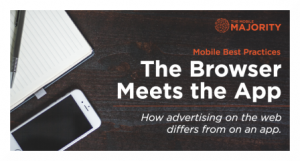By Stephen Magli
Within the past few years, the percentage of employees who quit their jobs has reached the highest levels in at least 20 years. This trend, along with quiet quitting, has been accelerated by the pandemic.
According to a study from Pew Research Center, low pay (63%), no opportunities for advancement (63%) and feeling disrespected at work (57%) were the top reasons for U.S. employees leaving their jobs in the previous year. Additionally, 45% of employees who quit their jobs in 2021 cited lack of flexibility in the workplace as a major contributing factor.
Since I became an entrepreneur, attracting and keeping top talent has been a priority for me. I believe this focus has contributed more to my company’s success than anything else I have done. In the more than five years since starting the company, we have never had an employee quit.
Here’s what I have learned when it comes to creating a workplace culture that prioritizes talent retention:
Lead with empathy
Whoever said “It’s better to be feared than loved” has clearly never led a company. If you don’t take the time to learn about your employees and build a relationship, why should they invest their time and effort? Creating a workplace culture that prioritizes balance, empathy, and dedication to employees is paramount to boosting not only workplace productivity but also retaining top talent.
Leaders have a lot of room for growth on this issue. While 96% of employees believe empathy is necessary to advance employee retention, 92% say empathy remains undervalued in the workplace.
Over the past several years, empathy has become increasingly important to lead a successful business. The pandemic strained all of us and highlighted the challenges of managing mental health and being a working parent, in particular. The ability to step up as a company and acknowledge the difficulties we were facing, offering solutions to face them together, and being honest and transparent about adjustments along the way has set a new precedent for what employees now come to expect. In fact, over 59% of employees believe that flexibility in the workplace is more important to their work experience than salary. My organization, AI Digital, is a fully-remote team to ensure employees have flexibility and a work style that caters to everyone’s needs.
The Russian invasion of Ukraine triggered one of the biggest challenges our company and our people have ever faced. At the time, we were employing a sizable team in Russia. As the military was approaching the Ukraine border during the week of Feb. 21, it was our responsibility to protect our talent and provide them a relocation plan that would be suitable for their needs and those close to them. Within a week, we organized a relocation effort to a safe and agreed upon location for them and their family members. We listened to their needs and provided all the appropriate resources. All of them are now safe and sound in Europe and our operations are thriving there.
The way I see it, employees mean more to our company than just the work they do. They’re people first and we make it a priority to help our people whenever we can.
Acknowledge all wins—big and small
It’s so easy to have tunnel vision and only focus on overarching goals. The small wins can easily get overlooked, which can lead to feelings of resentment and being undervalued. Celebrating wins, no matter how small, is an important foundation to any great company culture.
There are many ways to celebrate small victories. For example, on our company team calls, we highlight and most importantly celebrate team wins. It’s a great opportunity to acknowledge strong collaboration and team-driven work on key projects. Teamwork is encouraged and celebrated.

I think a personal touch also goes a long way, which is why I have always opted for gift giving around the holidays to show appreciation. A cash gift is nice, but an item that speaks to a person’s personality and interests can create a deeper connection. I’m personally an avid fan of watches and I have made it a tradition to gift luxury watches to star employees as the ultimate token of appreciation. To me, a watch can say a lot about a person, and I take time to choose the right one to give them that extra sense of being seen and valued.
Know your management style and hire based on it
Understanding how you work as a leader is also an important factor for employee retention. Some leaders like to be hands on while others, like me, prefer to give a lot of freedom and autonomy to teams. When I’m hiring, I look for traits that include experience, proven success in a previous role and a strong self-starter nature. Once on board, I view my role as the visionary and advocate, which I have found tends to inspire a productive and healthy team dynamic.
Finding employees who match with your management style can set the organization and workers up for a long and healthy relationship.
When you find good people and give them the ability to prove themselves, that’s when the magic happens. A great company is full of people who are passionate about what they do in an environment that lets them thrive, and it is through these practices and talented individuals that we continue to grow and keep a successful team.
Stephen Magli is the CEO and cofounder of AI Digital.
(18)







